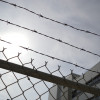Planet Earth Online - The Music Of Earthquakes
Interview with
Diana - A few days ago, a 7.2 magnitude earthquake hit Southern Pakistan. Fortunately, it caused limited damage, but in today's world, it can seem as if there were more earthquakes than ever before.
I say seem because scientists at the British Geological Survey in Edinburgh are often being asked whether earthquakes are becoming more frequent. Planet Earth Podcast presenter Richard Hollingham went to talk to seismologist Brian Baptie to find out if this was actually the case. The answer involves music and begins by comparing the number of earthquakes on Earth to throwing dice...
 布莱恩- Occasionally, you'll roll three sixes together. Earthquakes are a bit like that as well. You'll get times when there are a few earthquakes that happen together and then also you'll get pauses when there aren't so many earthquakes. If you look over the year as a whole, or a number of years as a whole, the numbers are all roughly the same.
布莱恩- Occasionally, you'll roll three sixes together. Earthquakes are a bit like that as well. You'll get times when there are a few earthquakes that happen together and then also you'll get pauses when there aren't so many earthquakes. If you look over the year as a whole, or a number of years as a whole, the numbers are all roughly the same.
Richard - Now you can prove this, can't you - with this computer program you've got up and the power of music?
布莱恩- We'll run through our sequence of earthquakes for the last decade and every time there's an earthquake, there'll be a noise, a little musical note, and what you'll be able to hear hopefully is that there'll be pauses, and then there'll be times when there are lots of notes all happening roughly at the same time.
Richard - Okay, so let's play this.
布莱恩- So each note is an earthquake.
布莱恩- And there are some pauses...
布莱恩- There's a longer pause now....
布莱恩- And you can hear how occasionally you get clusters or little groups of earthquakes happening at the same time and then we're in a longer pause...
布莱恩- And a few more...
Richard - So we had there South America, Indonesia...
布莱恩- These events are all happening in main global earthquake hotspots, if you like. They're big ones that are happening at plate boundaries and you can see on the map that they're clustering around in the Pacific.
Richard - Also several are there together.
布莱恩- So, this idea that you've got the clusters and gaps, earthquakes are not happening regularly. They're not like a person's heartbeat. They're not going to boom, boom, boom. They're going, babababum...boom, boom in that way.
Richard - Can we turn it off now?
布莱恩- Of course.
Richard - So we've switched that off. That could be one reason that you've got these clusters of earthquakes, even though the average is unchanged. What about the fact that there are more people living in the world now? Is that another reason that more people can be affected by an earthquake now?
 布莱恩- It's certainly true to say that there are far more people living in earthquake prone regions mainly because of increases in global population. So there's a huge swathe of Asia that can struck by big earthquakes starting from Turkey, Iran, through India, and into China where global populations are really increased in a big way. In those regions, earthquakes are capable of having far larger impacts than they have in the past. Also, there's a human perception thing going on here as well, because when earthquakes hit populated places, people look some more. Obviously, we're far more aware of the earthquakes that cause tragedies than the big earthquakes that happen in the middle of the pacific.
布莱恩- It's certainly true to say that there are far more people living in earthquake prone regions mainly because of increases in global population. So there's a huge swathe of Asia that can struck by big earthquakes starting from Turkey, Iran, through India, and into China where global populations are really increased in a big way. In those regions, earthquakes are capable of having far larger impacts than they have in the past. Also, there's a human perception thing going on here as well, because when earthquakes hit populated places, people look some more. Obviously, we're far more aware of the earthquakes that cause tragedies than the big earthquakes that happen in the middle of the pacific.
Richard - Could there be any reason though that earthquakes might increase? Is there any link between climate change and earthquakes, for example?
布莱恩- There isn't really a very strong relationship between earthquakes and climate change. There are some second order effects, if you like that might lead to increases in earthquake activity, but only in a really small way. One example of that is, as glaciers melt, as icecaps met, we get these phenomena called glacial rebound. It's basically when the ice goes, the lithosphere tends to rebound, it tends to push back up again, and that can result in earthquake activity, But generally, that won't be a big factor. And the reason for that is, that earthquakes are controlled by the motion of tectonic plates. You've got these plates that are moving around and that motion of the plates in turn is controlled by heat release deep inside the planet, and there's only a finite budget for this heat release which means the plates move at roughly the same speed. They're not speeding up or slowing down. So, the overall energy budget for earthquakes is roughly the same. So we wouldn't really expect earthquake activity to increase, unless the energy budget increased.
Richard - So really, there's no reason as far as you know, as far as you understand, how earthquakes happen, there's no reason for the number of them to increase.
布莱恩- That's right. As far as we understand at the moment, perhaps over much longer time scales once we have longer windows of observation if you like, it might become clear that there are these clustering phenomena happening for a reason, but at the moment, it's not clear to us.
Richard - It's like a radical jazz experiment gone wrong, isn't it?
Diana - That was Brian Baptie from the British Geological Survey talking to Richard Hollingham. You can download the latest Planet Earth podcast and find links to its host website Planet Earth Online at thenakedscientists.com/planetearth.









Comments
Add a comment